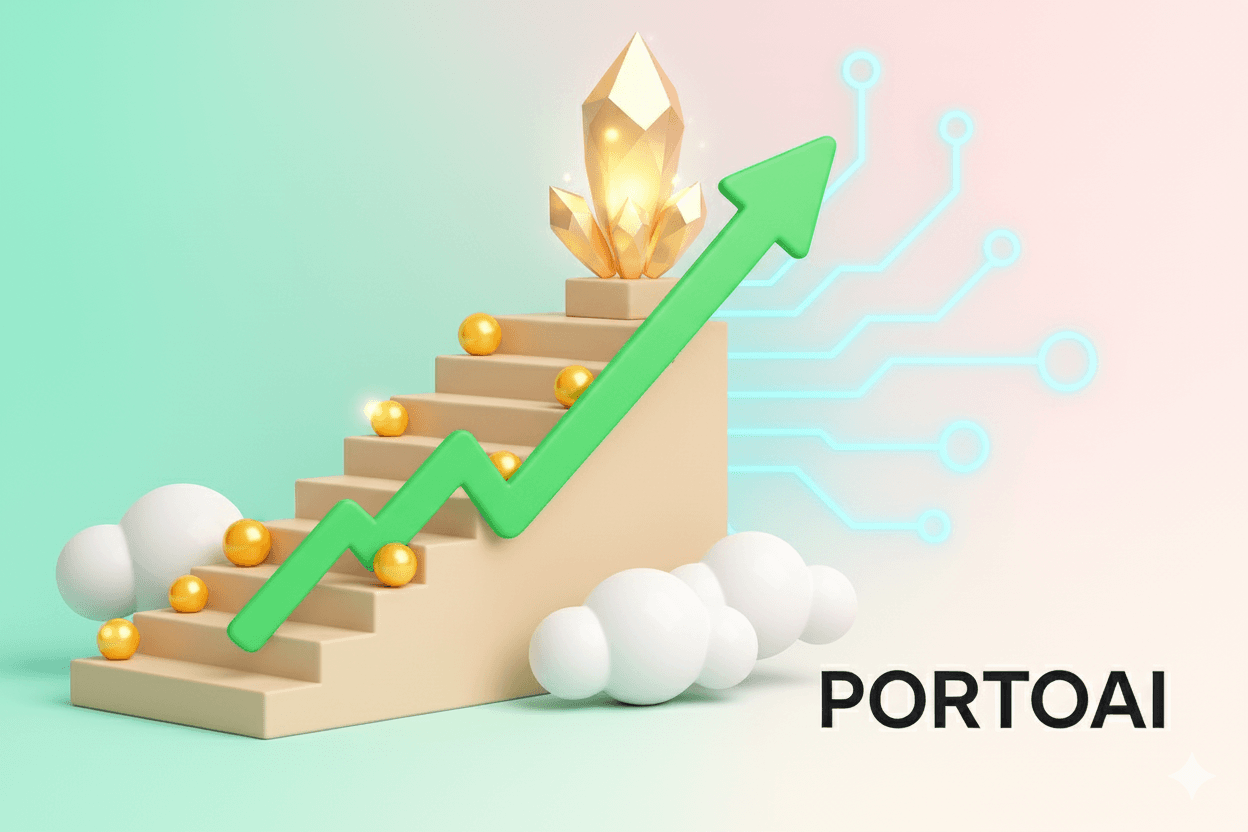India's Stock Exchanges: A Data-Driven Investor's Guide

Venkateshwar Jambula
Lead Market Researcher
7 min read
•Published on September 15, 2024
•India's Stock Exchanges: A Data-Driven Investor's Guide
The Indian capital markets have evolved significantly, establishing themselves as a robust and dynamic ecosystem within emerging economies. Driven by technological advancements and enhanced regulatory oversight by SEBI, trading volumes have surged. For sophisticated retail investors, financial advisors, and fund managers seeking a definitive edge, understanding the landscape of Indian stock exchanges is paramount. While the Bombay Stock Exchange (BSE) and the National Stock Exchange (NSE) are the most prominent, a comprehensive view includes other specialized exchanges.
At PortoAI, we believe that informed decision-making is the bedrock of intelligent investing. Our platform is designed to synthesize complex market data, providing you with the clarity needed to navigate these exchanges effectively.
Understanding Stock Exchanges
A stock exchange serves as a regulated marketplace where buyers and sellers meet to trade financial instruments such as stocks, commodities, and derivatives. In India, SEBI oversees these entities to ensure market integrity and investor protection.
Key Indian Stock Exchanges
While SEBI's data indicates a number of registered exchanges, a few are consistently active and play crucial roles in the financial ecosystem.
1. Bombay Stock Exchange (BSE)
- History: Established in 1875, the BSE is Asia's oldest stock exchange, originally known as The Native Share & Stock Brokers Association. Its roots trace back to informal gatherings of brokers in the 1850s, eventually formalizing on Dalal Street, Mumbai.
- Indices: The BSE introduced the Sensex in 1986, a benchmark index comprising 30 of the largest and most actively traded stocks across various sectors. Other significant indices include BSE 100, BSE 200, and sector-specific indices.
- Offerings: Beyond equities, the BSE offers trading in derivatives, including futures and options, as well as commodity derivatives such as gold, silver, crude oil, and steel. It ranks among the world's most valued exchanges.
2. National Stock Exchange (NSE)
- Establishment: Founded in 1992 and commencing operations in 1994, the NSE is a younger, yet dominant, exchange. It revolutionized trading with its advanced electronic trading system, moving away from paper-based settlements.
- Indices: The NSE is renowned for its NIFTY 50 index, representing the top 50 Indian companies listed on the exchange. Other key indices include Nifty Next 50 and various sectoral and thematic indices.
- Infrastructure: The National Securities Depository Limited (NSDL), a subsidiary of NSE, provides secure electronic holding and transfer of securities.
- Product Range: NSE offers trading in equities, equity derivatives, commodities, and currency derivatives.
3. Multi-Commodity Exchange (MCX)
- Specialization: MCX is India's leading commodity derivatives exchange, focusing on both agri-commodities (e.g., cardamom, cotton) and non-agri commodities (e.g., base metals, bullion like gold and silver, energy products).
- Innovation: It was the first commodity exchange in India to be listed on both BSE and NSE. MCX also offers index futures, such as the MCX BULLDEX and MCX METLDEX.
4. National Commodity and Derivatives Exchange (NCDEX)
- Focus: NCDEX primarily specializes in agri-commodity derivatives, offering a wide array of products including cereals, pulses, oilseeds, fibres, and spices.
- Market Role: It plays a vital role in price discovery and risk management for agricultural stakeholders and investors interested in this sector. NCDEX also offers index products like AGRIDEX.
5. India International Exchange (India INX)
- Positioning: India INX, a subsidiary of BSE, is India's first international stock exchange, located in the GIFT City, Gujarat. It operates on a highly advanced platform, offering 22-hour trading.
- Offerings: It facilitates trading in derivative products across equities, currencies, and commodities, as well as debt instruments. It aims to serve as a global hub for international financial activities, including trading foreign stocks.
6. NSE IFSC
- Affiliation: A wholly-owned subsidiary of NSE, NSE IFSC is also based in GIFT City, Gujarat. It offers a similar range of derivative products and operates for extended hours to cater to international markets.
7. Indian Commodity Exchange (ICEX)
- Niche: ICEX is notable for being the only exchange offering derivatives trading in diamond contracts. It also trades in agri-derivatives.
8. Calcutta Stock Exchange (CSE)
- Legacy: One of the oldest exchanges, the CSE has a long history and was once a significant player. Despite facing regulatory challenges and suspensions, it continues to operate as a licensed exchange.
9. Metropolitan Stock Exchange (MSE)
- Operations: MSE offers trading in futures and options, currency derivatives, and debt market instruments, similar to other major exchanges.
Navigating Your Investment Strategy with Data
Choosing the right exchange depends on your investment objectives. For equities, most major companies are listed on both BSE and NSE, offering flexibility. For commodities, MCX typically provides broader liquidity in non-agri products, while NCDEX is a key platform for agricultural derivatives.
At PortoAI, we empower you to make these strategic decisions with confidence. Our PortoAI Market Lens provides real-time data and sophisticated analytics across various asset classes and exchanges, allowing you to identify opportunities, assess risks, and execute trades based on rigorous data synthesis. By leveraging AI-driven insights, you can gain a deeper understanding of market dynamics and refine your investment strategy for long-term success.
Disclaimer: This content is for educational purposes only and does not constitute investment advice. Securities and investment decisions mentioned are not recommendations.
Blog
Investment Insights and Tips
Explore our latest investment strategies and insights.

Stocks
Master Investment Psychology: Control Emotions for Smarter Stock Decisions
The Psychology of Stock Investment: Understanding Emotions That Affect Investment Decisions A stock market is a funny place – both the seller and buye...
Venkateshwar Jambula
November 7, 2024
•4 min read

Stocks
Power Grid India Stock: Analyzing PGCIL's Price Movements & Future
The Rise and Fall: Unraveling the Power Grid Corporation of India Stock Price The Power Grid Corporation of India Stock Price (PGCIL) has experienced ...
Venkateshwar Jambula
November 6, 2024
•10 min read

Stocks
Are Multibagger Stocks Still Possible in 2025? Your AI Guide
These 6 Multibagger Stocks Exploded in 2025 — Is Your Portfolio Still in 2022? Till June 2025, the benchmark Sensex has risen by around 4%, reflecting...
Venkateshwar Jambula
November 5, 2024
•11 min read

Stocks
Top 5 Indian Growth Stocks & Sectors for 2025: AI-Driven Insights
Top 5 Best Growth Stocks in India & Sectors to Watch in 2025 You see the market correction in late 2024 and early 2025 was driven by weak economic...
Venkateshwar Jambula
November 4, 2024
•9 min read